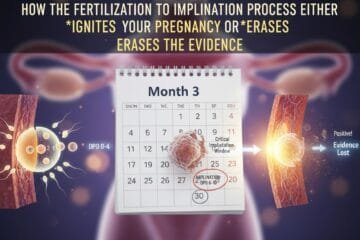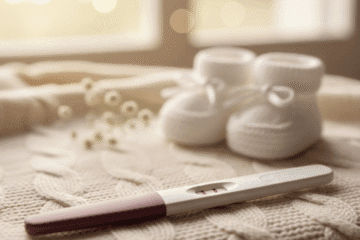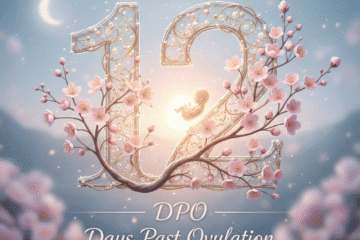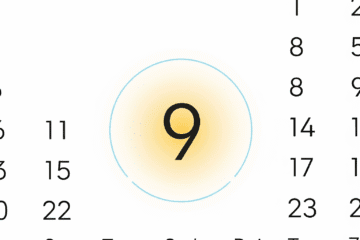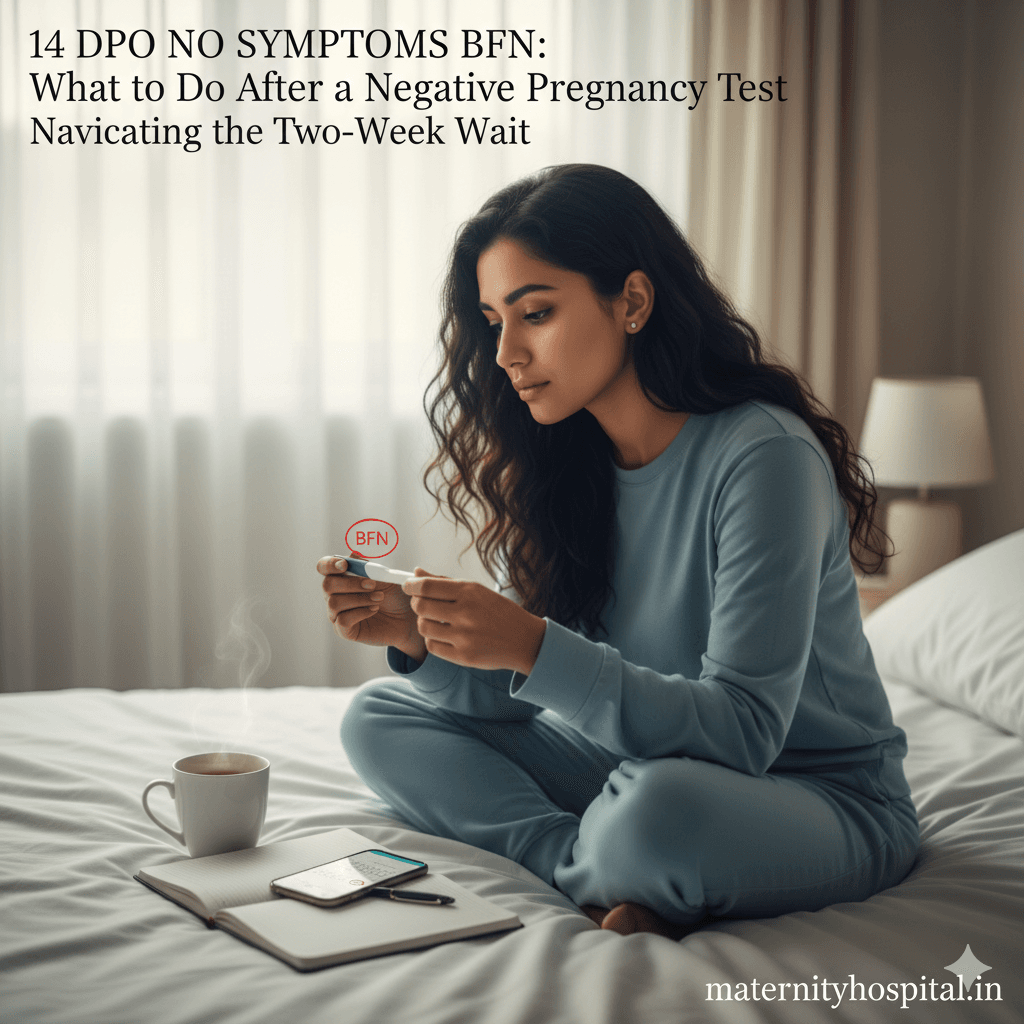
14 DPO No Symptoms BFN: What to Do After a Negative Pregnancy Test
The Emotional Crossroads of the Two-Week Wait
The journey to conception is an emotional gauntlet, but no phase is as intensely scrutinized as the Two-Week Wait (TWW). This period of time between ovulation and your expected period is filled with “symptom spotting,” obsessive calendar checking, and a rollercoaster of hope and despair. For many, the climax of this wait is 14 DPO, or 14 days past ovulation, which is often considered a definitive moment to take a pregnancy test. But what happens when you’re at this critical milestone and get a result that feels contradictory—a negative pregnancy test but no period? When you’re experiencing 14 DPO no symptoms BFN, the sense of confusion can be overwhelming.
This in-depth guide is designed to serve as your lifeline. We’ll explore the science behind why this perplexing situation occurs, debunk common myths, and provide a comprehensive, empathetic roadmap for your next steps. Our goal is to empower you with knowledge, replace anxiety with understanding, and help you navigate your fertility journey with resilience. We’ll delve into everything from the biological reasons for a delayed period to the emotional toll of a BFN and the medical advice you should consider.
The Science of a Misleading Timeline
The most common reason for a 14 DPO no symptoms BFN is that your body’s timeline is simply different from the textbook average. While a typical menstrual cycle is 28 days with ovulation occurring around day 14, this is not a universal rule. Understanding the nuances of your cycle is the key to decoding this confusing moment.
Understanding Your Cycle’s Luteal Phase
The luteal phase is the second half of your menstrual cycle, starting after ovulation and ending when your period begins. While the average is 14 days, a healthy luteal phase can range from 10 to 16 days. If your normal luteal phase is, say, 16 days, then getting a negative pregnancy test but no period at 14 DPO is completely normal for your body, as you’re still two days away from your expected period. This simple variation can be a major source of confusion and is one of the primary reasons for a BFN at this stage.
Late Ovulation: The Primary Culprit
It’s common for ovulation to be delayed for various reasons, including stress, illness, travel, or even minor changes in your routine. If you ovulated just a few days later than you anticipated, then your “14 DPO” is a miscalculation. You might actually be at 12 DPO, or even 10 DPO. At these earlier stages, even if you are pregnant, the levels of hCG are often too low to be detected by most home pregnancy tests. This is why many women who experience a 14 DPO no symptoms BFN eventually get a positive result a few days later when they retest.
Late Implantation: The Hidden Variable
Even if you know your ovulation date with perfect accuracy, the timing of implantation is the true variable. While implantation typically occurs between 8 and 10 DPO, it can happen as late as 12 DPO. When implantation occurs, your body begins to produce hCG. If it happens late, say on 12 DPO, your hCG levels at 14 DPO are still in their very early stages and may not be high enough for a sensitive test to detect. This is a crucial factor in the negative pregnancy test but no period phenomenon.
The Truth About Symptoms and Tests
The term “14 DPO no symptoms BFN” implies that a lack of symptoms is a bad sign, but this is a common misconception. In reality, having no symptoms is completely normal.
Symptoms are Not Universal
Early pregnancy symptoms are caused by rising hormone levels, primarily hCG and progesterone. However, the timing and intensity of these symptoms vary dramatically from person to person and even from pregnancy to pregnancy. Many women don’t feel any symptoms until well into their first trimester, so a lack of early signs is not an indicator of whether you’re pregnant. The symptoms of early pregnancy often mimic those of PMS, like breast tenderness, cramping, and fatigue, making it even harder to tell the difference.
Understanding Test Sensitivity
Not all home pregnancy tests are the same. Some tests claim to detect hCG at very low levels (as low as 10 mIU/mL), while others require a higher concentration (25 mIU/mL or more). If you’re getting a BFN, it could simply mean your hCG levels are still below the detection threshold of the specific test you used. The time of day you test also matters; testing with first-morning urine is recommended because the concentration of hCG is highest then. Diluting your urine by drinking too much water before a test can lead to a false negative.
The Emotional and Mental Health Aspects
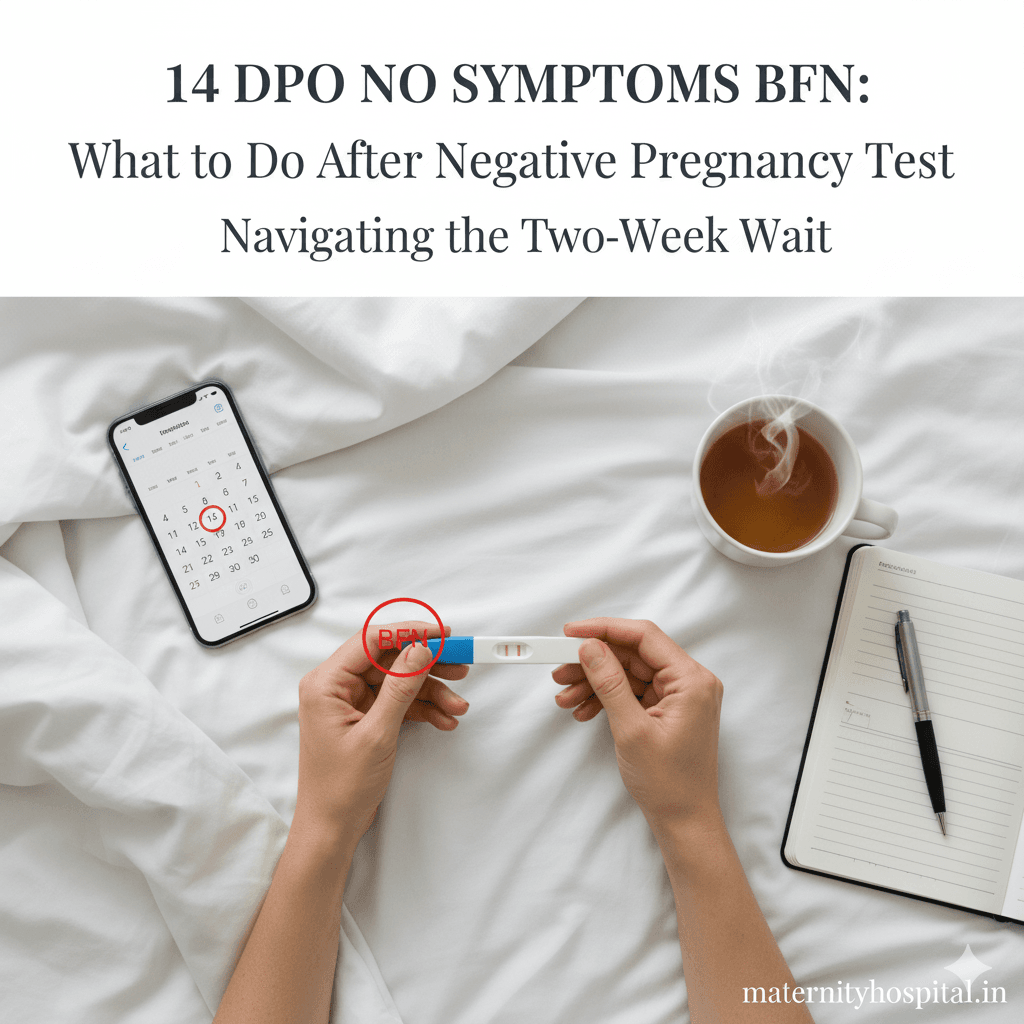
The emotional toll of a 14 DPO no symptoms BFN can be significant. The hope and anxiety of the TWW often build to a peak at this point, and a negative result can feel like a punch to the gut. It’s important to acknowledge and process these feelings.
Coping with Disappointment and Uncertainty
- Acknowledge Your Feelings: It is okay to feel sad, frustrated, or angry. Don’t dismiss your feelings by telling yourself it’s “just a negative test.” This is a form of grief for the hope you held onto.
- Communicate with Your Partner: This is a shared journey. Talk openly and honestly with your partner about your feelings. Supporting each other through this uncertainty is vital for a healthy relationship.
- Avoid the Comparison Trap: It’s easy to get lost in online forums and compare your experience to others. Remember that every person and every cycle is unique.
- Practice Self-Care: Take a break from “TTC” (trying to conceive) if you need to. Go for a walk, watch a movie, or do something that makes you happy.
When to Call Your Doctor and Next Steps
While most cases of a 14 DPO no symptoms BFN resolve themselves with either a period or a later positive test, there are times when medical intervention is needed.
When to Retest
If your period hasn’t started and you’re still getting a BFN, retest in 2-3 days. This gives your body a chance to produce more hCG. If you’re still getting negative tests after a week, it may be time to consult your doctor.
When to See a Doctor
If your period is a week late and you’re still getting negative results, your doctor can order a blood test, which is a much more sensitive and accurate way to detect hCG. They can also help you explore other potential causes for a delayed period, such as:
- Hormonal Imbalances: Conditions like PCOS or thyroid issues can disrupt your cycle.
- Lifestyle Factors: Extreme stress, sudden weight changes, or a new exercise routine can all cause a delayed period.
Official External Resources
For additional information and support, you can refer to these official resources.
- American College of Obstetricians and Gynecologists (ACOG): Provides comprehensive information on women’s health and fertility. https://www.acog.org
- National Institute of Child Health and Human Development (NICHD): Offers resources on reproductive health and pregnancy. https://www.nichd.nih.gov
Conclusion
Experiencing 14 DPO no symptoms BFN is a test of both your physical and emotional strength. It’s a common and valid source of confusion, but by understanding the scientific and emotional factors at play, you can approach this moment with a sense of calm and control.


